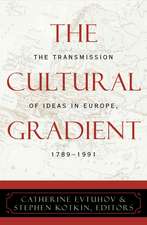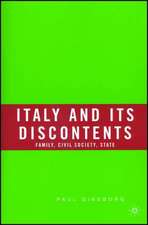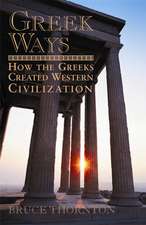Germany, 1914-1933: Politics, Society and Culture
Autor Matthew Stibbeen Limba Engleză Paperback – 10 iun 2010
Combining traditional political narrative with new insights provided by social and cultural history, the book reconsiders such key questions as:
- How widespread was support for the war in Germany between 1914 and 1918?
- How was the war viewed both ‘from above’, by leading generals, admirals and statesmen, and ‘from below’, by ordinary soldiers and civilians?
- What were the chief political, social, economic and cultural consequences of the war? In particular, did it result in a brutalisation of German society after 1918?
- How modern were German attitudes towards work, family, sex and leisure during the 1920s? What accounts for the extraordinary richness and experimentalism of this period?
The book also provides a thorough and comprehensive discussion of the difficulties faced by the Weimar Republic in capturing the hearts and minds of the German people in the 1920s, and of the causes of its final demise in the early 1930s.
| Toate formatele și edițiile | Preț | Express |
|---|---|---|
| Paperback (1) | 238.40 lei 3-5 săpt. | +17.42 lei 4-10 zile |
| Taylor & Francis – 10 iun 2010 | 238.40 lei 3-5 săpt. | +17.42 lei 4-10 zile |
| Hardback (1) | 1003.43 lei 6-8 săpt. | |
| Taylor & Francis – 21 mai 2015 | 1003.43 lei 6-8 săpt. |
Preț: 238.40 lei
Nou
Puncte Express: 358
Preț estimativ în valută:
45.62€ • 49.54$ • 38.32£
45.62€ • 49.54$ • 38.32£
Carte disponibilă
Livrare economică 01-15 aprilie
Livrare express 15-21 martie pentru 27.41 lei
Preluare comenzi: 021 569.72.76
Specificații
ISBN-13: 9781405801362
ISBN-10: 1405801360
Pagini: 288
Dimensiuni: 156 x 234 x 15 mm
Greutate: 0.45 kg
Ediția:1
Editura: Taylor & Francis
Colecția Routledge
Locul publicării:Oxford, United Kingdom
ISBN-10: 1405801360
Pagini: 288
Dimensiuni: 156 x 234 x 15 mm
Greutate: 0.45 kg
Ediția:1
Editura: Taylor & Francis
Colecția Routledge
Locul publicării:Oxford, United Kingdom
Public țintă
Postgraduate and UndergraduateCuprins
Introduction. 1 The War From Above. 2 The War From Below. 3 Political and Psychological Consequences of the War. 4 Economy and Society in the 1920s. 5 Weimar Culture. 6 The Final Years of the Republic. Conclusion.
Notă biografică
Matthew Stibbe is Reader in History at Sheffield Hallam University. He has published widely in the field of First World War studies and modern German history, and his books include British Civilian Internees in Germany: The Ruhleben Camp, 1914-18 (2008) and Women in the Third Reich (2003).
Recenzii
"Clear, concise, thought-provoking... This topical introduction works very well in setting the scene, explaining different approaches and stimulating further in-depth study."
- Times Higher Education
- Times Higher Education
Descriere
Germany, 1914-1933 takes a fresh and critical look at this crucial period in German history. The book suggests that previous scholars have been wrong to focus on 1918 rather than 1914 as the starting point of Germany’s descent into chaos and dictatorship and in particular will show that 1914 was a significant turning point in terms of German attitudes towards nationalism and gender and the role of violence in political life.
Also included is a critical discussion of the failure of the Weimar Republic to capture the hearts and minds of German people in the 1920s, and the causes of its final demise in the early 1930s.
Also included is a critical discussion of the failure of the Weimar Republic to capture the hearts and minds of German people in the 1920s, and the causes of its final demise in the early 1930s.

















